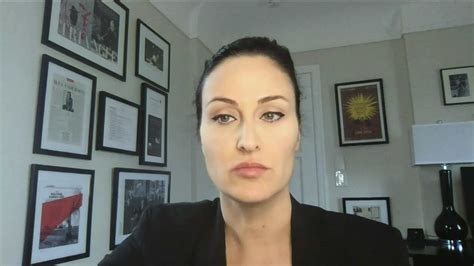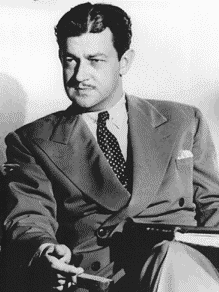A Quote by Anthony Burgess
It seems priggish or pollyannaish to deny that my intention in writing the work was to titillate the nastier propensities of my readers. My own healthy inheritance of original sin comes out in the book and I enjoyed raping and ripping by proxy. It is the novelist’s innate cowardice that makes him depute to imaginary personalities the sins that he is too cautious to commit for himself.
Related Quotes
Do not lose your temper with those who sin. Do not have a passion for noticing every sin in your neighbor and judging it, as we usually do. Everyone will give an answer for himself before God. Especially, do not look with evil intention on the sins of those older than you, with whom you have no business. But correct your own sins, your own heart.
Do not be irritated either with those who sin or those who offend; do not have a passion for noticing every sin in your neighbour, and for judging him, as we are in the habit of doing. Everyone shall give an answer to God for himself. Everyone has a conscience; everyone hears God's Word, and knows God's Will either from books or from conversation with other people. Especially do not look with evil intention upon the sins of your elders, which do not regard you; "to his own master he standeth or falleth." Correct your own sins, amend your own life.
All errors are just ordinary, what extraordinary sin can you commit? All the sins have been committed already. You cannot find a new sin - it is very difficult, it is almost impossible to be original about sin. For millions of years people have committed everything that can be committed. To be thrown in hell for your sins. Now this is too much! you can throw a man into hell for five years, ten years, twenty years, fifty years. If a man has lived for seventy years you can throw him there for seventy years.and that is if you only believe in one life. It is good that they believe in one life.
Pilate sentenced him due to fear, in accordance with the petition and intention of others. These people sentence him for their own advantage and without any fear, by dishonoring him through sin that they could abstain from, if they wanted. But they neither abstain from sin nor are they ashamed of their already committed sins, for they do not take into consideration their unworthiness of the kindness of the one whom they do not serve.
God does not save those who are only imaginary sinners. Be a sinner, and let your sins be strong (sin boldly), but let your trust in Christ be stronger, and rejoice in Christ who is the victor over sin, death, and the world. We will commit sins while we are here, for this life is not a place where justice resides. We, however, ... are looking forward to a new heaven and a new earth where justice will reign.
To free a man from suffering, he must be set right, put in health; and the health at the root of man's being, his rightness, is to be free from wrongness, that is, from sin. A man is right when there is no wrong in him. I do not mean set free from the sins he has done: that will follow; I mean the sins he is doing, or is capable of doing; the sins in his being which spoil his nature — the wrongness in him — the evil he consents to; the sin he is, which makes him do the sin he does.
And so with Hemingway's writing, he famously wrote to one of his publishers - he said, you don't need a high school education to enjoy my writing. And it's going to titillate the masses. I mean, anybody can relate to it, but the style is so revolutionary that it will titillate highbrow critics, which it did.
Douglas Adams did not enjoy writing, and he enjoyed it less as time went on. He was a bestselling, acclaimed, and much-loved novelist who had not set out to be a novelist, and who took little joy in the process of crafting novels. He loved talking to audiences. He liked writing screenplays. He liked being at the cutting edge of technology and inventing
The first duty of a Christian, of a disciple and follower of Jesus Christ, is to deny himself. To deny oneself means to give up one's bad habits, to root out of the heart all that ties us to the world; not to cherish bad desires and thoughts; to quench and suppress bad thoughts; to avoid occasions of sin; not to do or desire anything from self-love but to do everything out of love for God. To deny oneself means, according to the Apostle Paul, to be dead to sin and the world, but alive to God.





































